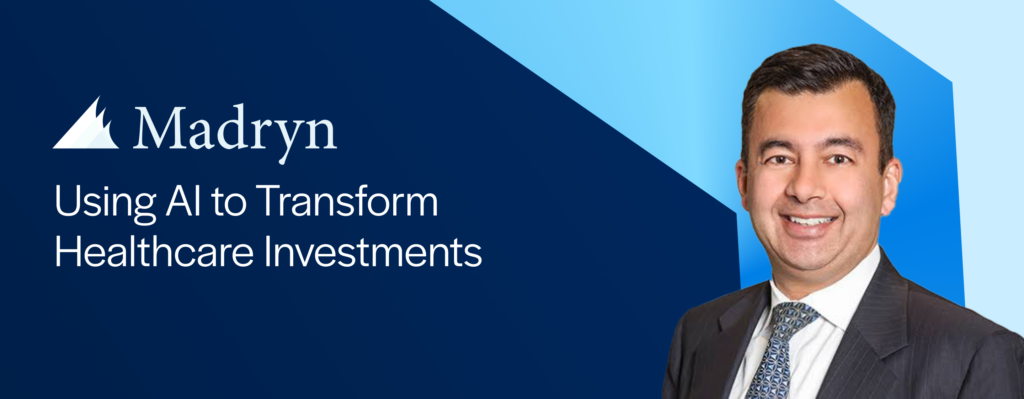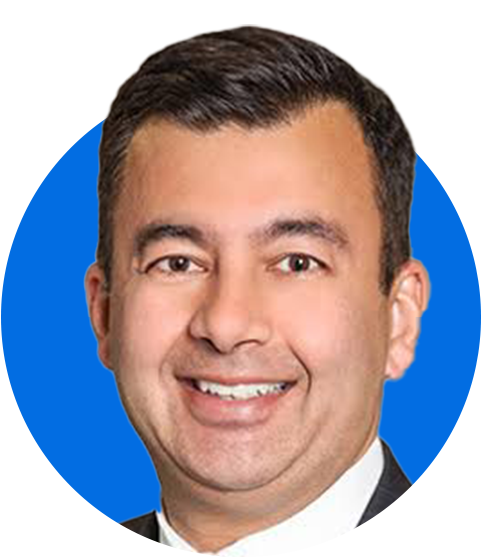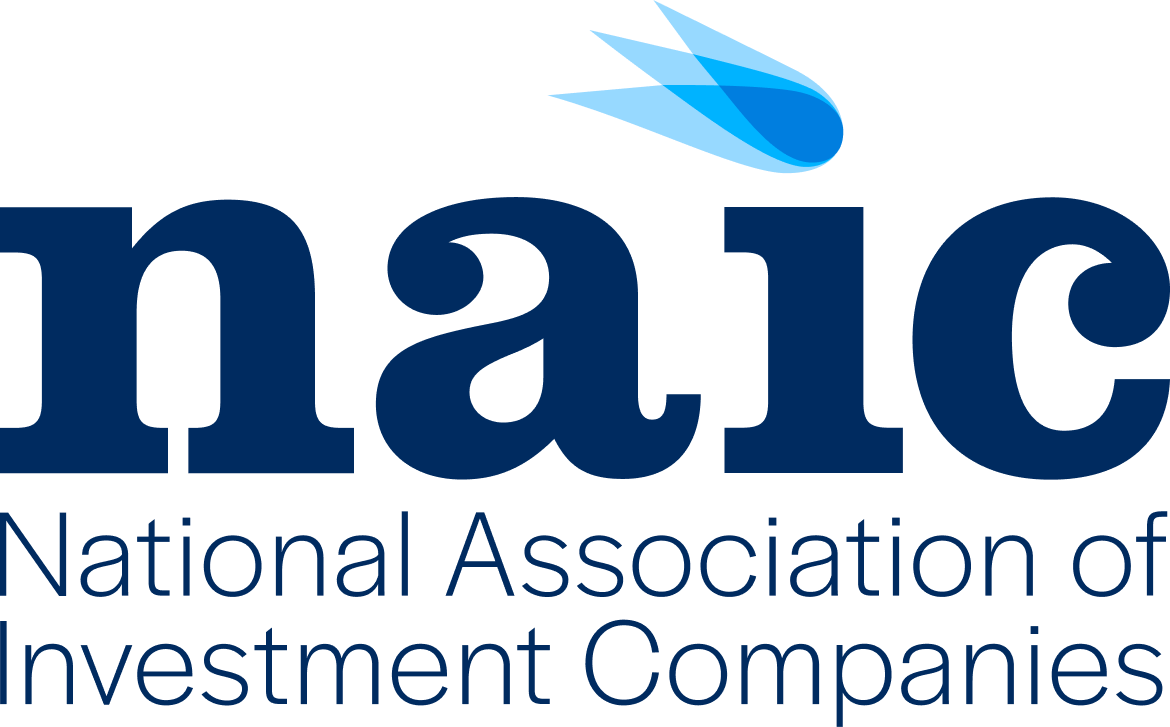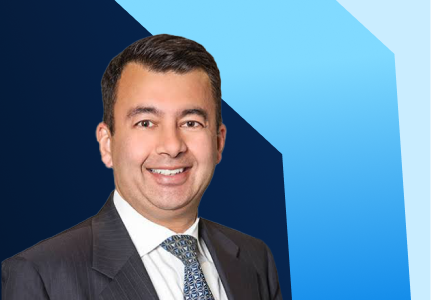
The U.S. healthcare industry, accounting for $5 trillion or 20% of the nation’s economy, has long struggled with administrative inefficiencies, which amount to 15%-20% of total costs. Tasks such as confirming insurance details and patient medication lists have created bottlenecks that slow doctor visits and divert medical professionals from patient care. However, adopting AI alleviates these burdens by automating key processes, freeing clinicians to focus on what they do best—providing care.
Madryn Asset Management, an alternative asset management firm specializing in healthcare innovation, is leveraging AI to enhance the performance of its portfolio companies. According to Managing Partner Avinash Amin, MD, roughly one-third of Madryn’s portfolio companies apply AI meaningfully.
“When we think about AI for Madryn, we’re not looking for the company that did a couple of rounds at a very high valuation. We’re looking to leverage AI technology in the plain old blocking-and-tackling businesses we have.”
Avinash Amin, M.D., Managing Director, Madryn Asset Management

By streamlining administrative tasks, AI optimizes patient interactions and enables more cost-effective decisions, such as selecting medications based on insurance coverage. “I believe that this is one of the most exciting times in the healthcare sector because so much of healthcare is language,” Dr. Amin notes. “When talking with your doctor or nurse, sometimes it’s simple stuff like insurance, and then it gets into more complex conversations that you can’t teach AI how to do yet, but you can save a lot of time in the prep work leading up to that clinician interaction.”
Boosting Profitability and Care Outcomes
AI’s impact extends beyond efficiency; it enhances profitability and patient care. “We have companies focused on dialysis and behavioral health, and with AI, we can raise margins from 10%-20% while enhancing patient care,” Dr. Amin explains. By automating repetitive tasks, such as verifying medication lists, AI enables doctors to spend more time addressing patient issues — “the exciting part,” as Amin calls it. AI also helps mitigate the doctor and nurse shortage, improving care and delivering stronger returns for investors. “We’re to the moon about the excitement,” he adds.
One of Madryn’s portfolio companies, Neuronetics, uses AI to revolutionize depression treatment. With over 100 clinics nationwide, the company handles thousands of patient calls daily, triaging individuals based on medication history and location to connect them with appropriate doctors or schedule treatment. AI automates key tasks, including information gathering and eligibility assessment, reducing operational costs and improving patient outcomes. “This AI efficiency allows us to help more patients while making the care process smoother for our team,” notes Dr. Amin.
Neuronetics tracks patients throughout their care journey, ensuring timely appointments and effective treatments, which have a 40%-50% success rate in improving severe depression symptoms. By eliminating tedious administrative work and allowing staff to focus on meaningful interactions, AI helps address the growing behavioral health crisis. “Behavioral health is an epidemic in the U.S., and AI-driven efficiencies are key to helping patients and creating a more profitable, scalable business,” Amin emphasizes.
A Strategic Approach
With more than $1 billion in capital deployed since its 2017 inception, Madryn’s investment thesis is rooted in targeting inefficiencies within the complex healthcare sector for attractive, risk-adjusted returns. The firm typically provides debt or equity capital to companies with annualized revenues of $30-$50 million, many of which have received sponsor-backed venture capital funding. In most cases, these companies have completed R&D on their core products and may have FDA approval on core and ancillary offerings. Madryn seeks to structure approximately 85% of its investments as private debt, with the remaining 15% as equity transactions.
While private debt may carry higher interest rates than traditional bank financing, Madryn’s portfolio companies often do not qualify for traditional loans or prefer to avoid equity dilution during growth phases. Madryn endeavors to mitigate volatility by focusing primarily on debt investments, which can offer limited partners downside protection and attractive yields.
In addition to financial support, Madryn helps refine companies’ go-to-market and clinical strategies while keeping management informed of market developments that could affect exit strategies or public offerings. Further enhancing the firm’s deep medical expertise, Dr. Rochelle Walensky, former CDC Director, joined Madryn as Chief Scientific and Policy Advisor in August 2024. Appointed by President Biden during the COVID-19 pandemic, Dr. Walensky managed a $15 billion budget and 12,000 employees, leading a major CDC restructuring to strengthen public health crisis responses.
Utilizing AI for Long-Term Success
Dr. Avinash Amin’s transition from practicing medicine to managing healthcare investments has been instrumental to Madryn’s success. After completing his medical degree, residency, and board certification at Washington University in St. Louis, Dr. Amin served as Chief Clinical Officer at Novactyl, Inc. He later assumed investment leadership roles at firms like Siguler Guff and Visium Fund Management before founding Madryn Asset Management in 2017. His clinical expertise enables him to identify opportunities in growth equity, structured debt, and royalty monetizations.
Dr. Amin emphasizes the ethical responsibility of investing in healthcare. “When we invest in companies who build innovative products, we have to be mindful of making sure that everyone is able to access those products,” he explains. “When we think about Madryn’s mission and NAIC’s mission of advancing diverse communities, the healthcare mission and the diversity mission really go hand-in-hand.”
Madryn Asset Management’s approach to AI reflects a disciplined, strategic focus on applying technology to enhance portfolio companies rather than directly investing in AI startups, integrating AI solutions, using them to optimize operations, improve patient outcomes, and boost profitability. This approach positions Madryn to create value while minimizing risk, making its portfolio companies and the firm itself more efficient. “We’re not a venture capital firm based in Silicon Valley, so we think those companies are going to come out of Silicon Valley, and it’s going to be very hard for firms not in that ecosystem to pick the winners,” he explains.

